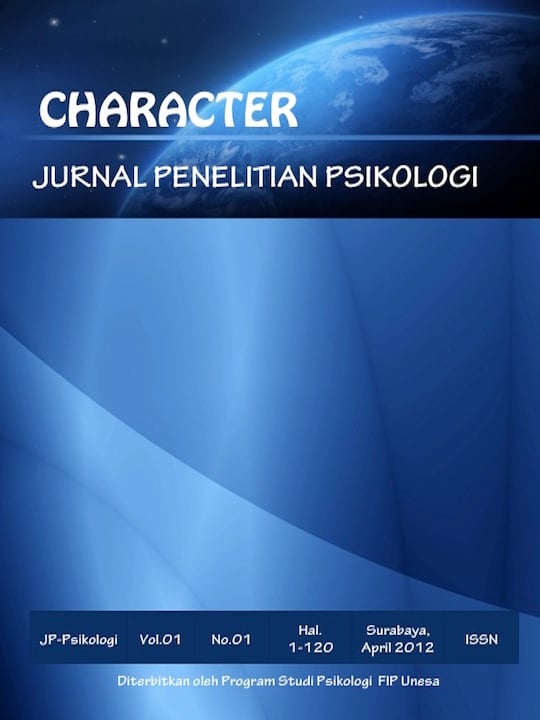HUBUNGAN ANTARA EFIKASI DIRI DENGAN PROKRASTINASI AKADEMIK PADA SISWA KELAS XI DI SMA X
DOI:
https://doi.org/10.26740/cjpp.v8i8.41668Abstract
Abstrak
Prokrastinasi akademik merupakan permasalalahan yang sering muncul di kalangan siswa. Situasi pandemic saat ini mengharuskan kegiatan belajar mengajar dilakukan secara daring. Sistem pembelajaran daring juga mengakibatkan adanya perubahan-perubahan mulai dari durasi pemberian materi yang pendek dan lebih menekankan pada pemberian tugas. Pemberian tugas yang semakin menumpuk dan minimnya pendampingan serta pengawasan pada siswa dapat mengakibatkan siswa melakukan penundaan dalam pengerjaan tugas yang diberikan. Penelitian ini bertujuan untuk mengetahui hubungan antara efikasi diri dengan prokrastinasi akademik pada siswa kelas XI di SMA X selama menjalani pembelajaran daring di masa pandemi. Sampel yang digunakan merupakan keseluruhan siswa dari populasi sehingga termasuk dalam teknik pengambilan sampel jenuh. Jumlah siswa yang menjadi subjek dalam penelitian ini sebanyak 223 siswa baik dari jurusan IPA maupun IPS. Teknik analisa data yang digunakan adalah product moment pearson. Hasil dari penelitian ini menunjukkan adanya hubungan yang signifikan dan memiliki arah negatif antara efikasi diri dengan prokrastinasi akademik pada siswa kelas XI di SMA X. Koefisien korelasi yang diperoleh dalam penelitian ini sebesar -0.244, memberikan gambaran bahwa terdapat hubungan yang rendah diantara kedua variabel. Berdasarkan hasil penelititian diketahui bahwa efikasi diri adalah satu variabel yang dapat menentukan tingkat prokrastinasi akademik pada siswa, terutama selama menjalankan pembelajaran jarak jauh yang mengharuskan tidak adanya pengawasan secara langsung dari guru. Selain itu, baik efikasi diri maupun prokrastinasi akademik tidak dipengaruhi oleh jenis kelamin dan jurusan siswa di sekolah.
Kata Kunci: Efikasi Diri, Prokrastinasi Akademik, Siswa
Abstract
Academic procrastination is a problem that often arises among students. The current pandemic situation requires teaching and learning activities to be carried out online. The online learning system also resulted in changes ranging from a short duration of material giving and more emphasis on giving assignments. Giving assignments that are piling up and the lack of assistance and supervision to students can result in students delaying the work given. This study aims to determine the relationship between self-efficacy and academic procrastination in class XI students at SMA X online learning during the pandemic. The sample used is all students from the population so that it is included in the saturated sampling technique. The number of students who became subjects in this study were 223 students from both science and social studies majors. The data analysis technique used is Pearson's product moment. The results of this study indicate a significant and negative relationship between self-efficacy and academic procrastination in class XI students at SMA X. The correlation coefficient obtained in this study is -0.244, giving an illustration that there is a low relationship between the two variables. Based on the research results, it is known that self-efficacy is a variable that can determine the level of academic procrastination in students, especially during distance learning which requires no direct supervision from the teacher. In addition, both self-efficacy and academic procrastination were not influenced by gender and students' majors at school.
Keyword: Self-Efficasy, Academic Procrastionation, Student
Downloads
Downloads
Published
How to Cite
Issue
Section
License
Authors who publish in this journal agree to the following terms:
Copyright in any article is held by the author.
The author grants the journal, publication rights with the work simultaneously licensed under a Creative Commons Attribution License that allows others to share the work with an acknowledgment of the work's authorship and initial publication in this journal.
Authors may enter into separate, additional contractual arrangements for the non-exclusive distribution of the journal's published version of the work (e.g., posting it to an institutional repository or publishing it in a book), with an acknowledgment of its initial publication in this journal.
Authors are permitted and encouraged to post their work online (e.g., in an institutional repository or on their website) prior to and during the submission process, as this can lead to productive exchanges, as well as earlier and greater citation of published work.
 Abstract views: 1884
,
Abstract views: 1884
, PDF Downloads: 1549
PDF Downloads: 1549





